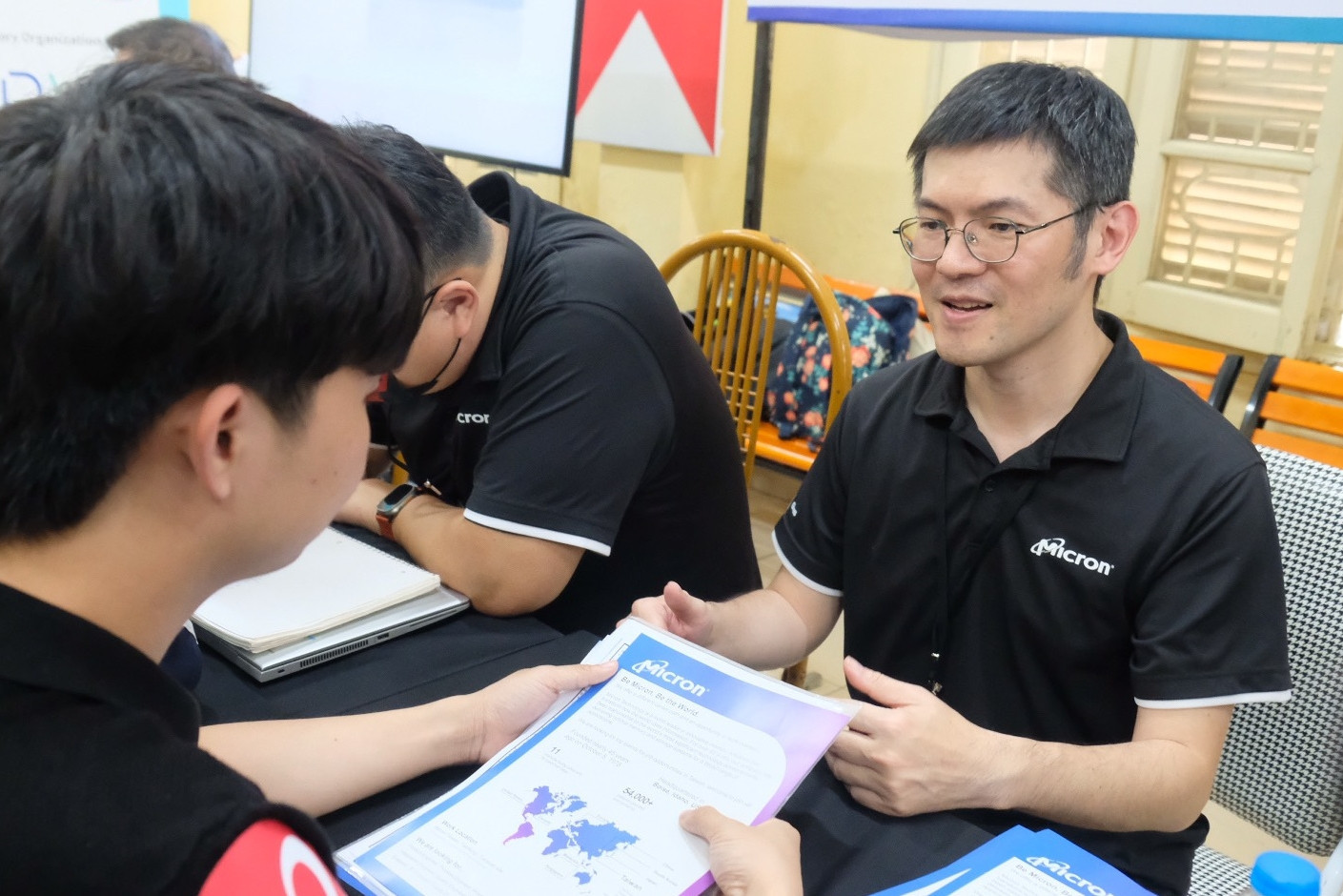
Labor experts say that demand for workers in semiconductor technology is now very high. In Taiwan (China), the No1 chip manufacturer, workers can earn tens of thousand of dollars a year.
Semiconductor technology has been a popular training major in recent years, according to Pham Nguyen Hai from the Faculty of Physics under the Hanoi University of Natural Sciences.
A report said the world’s semiconductor technology market will have value of $10 trillion by 2030. Meanwhile, Vietnam is lacking 50,000 engineers, including 15,000 design engineers and 35,000 engineers working in chip manufacturing plants.
However, many Vietnamese students want economics-related majors as they believe that business will bring higher incomes. It is difficult to recruit excellent students for certain sciences.
According to Hai, the foundation of semiconductor technology study is physics, chemistry and mathematics, those who have good knowledge in those fields can apply.
Some majors related to semiconductor technology are being offered at the Hanoi University of Natural Sciences, including physics, materials science, electronic engineering and informatics.
Some businesses from Taiwan (China) have come to Vietnam to ‘hunt’ for talented students. Many of them are willing to grant scholarships and offer attractive pay if Vietnamese students come to study and commit to stay there to work.
At the Semiconductor Job and Study Day held by the Hanoi University of Natural Sciences recently, Oscar Lin from Micron said the company is seeking workers in Vietnam and other Asian countries.
As for interns, they will get financial support in air tickets, insurance premiums and receive pay of around VND33 million a month. As for official workers, the company offers pay of $17,000-40,000 a year.
In mid-March, the Taiwanese education agency announced a special education program reserved for Vietnamese, Indonesian and Filipino talents, focusing on producing workers for technical engineering, chip and semiconductors. To obtain scholarships, students have to commit to work at the enterprises which place orders for two years.
According to Yu-Sheng Winston Su from Yang Ming Chiao Tung, a public university, Taiwanese companies need highly qualified workers to undertake R&D work rather than just normal workers and engineers.
Five years ago, the school joined forces with the Hanoi University of Natural Sciences to produce master degree holders in semiconductors.
According to Hai, people with a master’s degree can earn $60,000 a year in Taiwan.
Thuy Nga